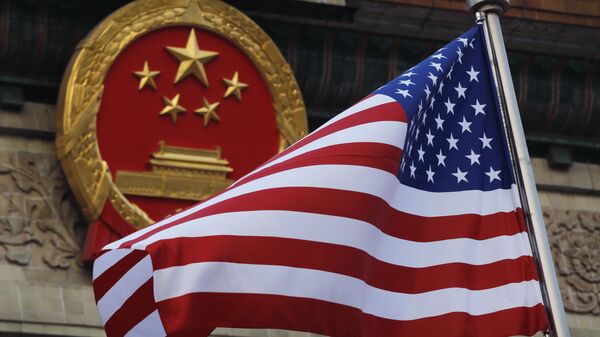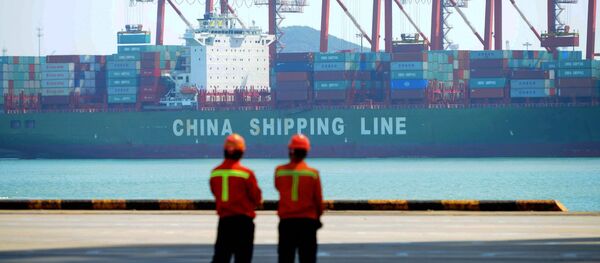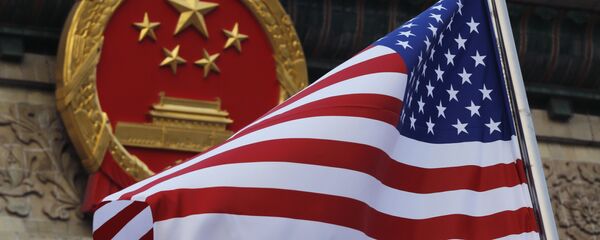Sputnik: What outcome do you think will come, if any, following these trade talks?
Oh Ei Sun: There will be very little concrete outcome coming out of these trade talks. As the American President Donald Trump pointed out, even he himself doesn’t pin too much hope on the talks. I think that usually the Chinese side is more anxious to end this round of the trade war because China is essentially the factory for almost the whole world and they export a lot of things primarily to the United States. So, these sorts of sanctions, this trade war, and tariffs will hurt them more than those goods from the US.
Oh Ei Sun: Chinese economy is very much a premise upon the export. I think if you tally the amount of export that China is giving to the whole world it is comparable to the whole GDP. The main destination of [Chinese] export is indeed the US. When United States repeatedly sort of slapped tariffs on goods exported from China imported to the United States it definitely made Chinese goods less competitive and therefore it’s going to hurt their economy not even in the long run but in the short run as well. As for the United States, they do a lot of export as well but a lot of these exports are very essential items such as rather high tech electronic components which are essential in computers and in mobile phones. Even if China in retaliation also slaps on tariffs on these goods the Chinese companies will still have to purchase those components; so it’s going to be a double whammy for China. If the US imposes tariffs, it’s going to hurt Chinese export; if China itself imposes tariffs on American imports to China, it’s going to hurt some of its own businesses as well.
Sputnik: Many experts have expressed concerns that the differences between the nations’ economic systems can also lead to a long trade deadlock; can you perceive a long trade deadlock or are they going to be able to get their heads together? We know that President Trump’s strategy is one of isolation. He wants to return quality of life and economic welfare to his country; he doesn’t look as though he is going to stand down on this one. Is there going to be a compromise?
Oh Ei Sun: At some point there will be a compromise. If you look at President Trump’s pattern of how he runs, for example, American domestic economy as well as some of its foreign affairs patterns of behavior over the past year and a half, you will see that usually he would impose certain very stringent conditions in order to “soften the opponent.” And when the opponent in his opinion is softened enough then he would come to a compromise.
Oh Ei Sun: Take, for example, Malaysia where they assemble some electronic components which are then exported to China for additional assembling, and then, finally, they are sent to the US for the final assembly. If the US is imposing sanctions on some of these intermediary products, then it’s going to affect the amount of these goods that our factories in Malaysia will produce as well. It’s going to have a chain effect or a domino effect which would affect the economies of some other countries as well, especially countries like Malaysia and some other Southeast Asian countries which are also very much export-oriented.
The views expressed in this article are those of the speaker, and do not necessarily reflect those of Sputnik.




